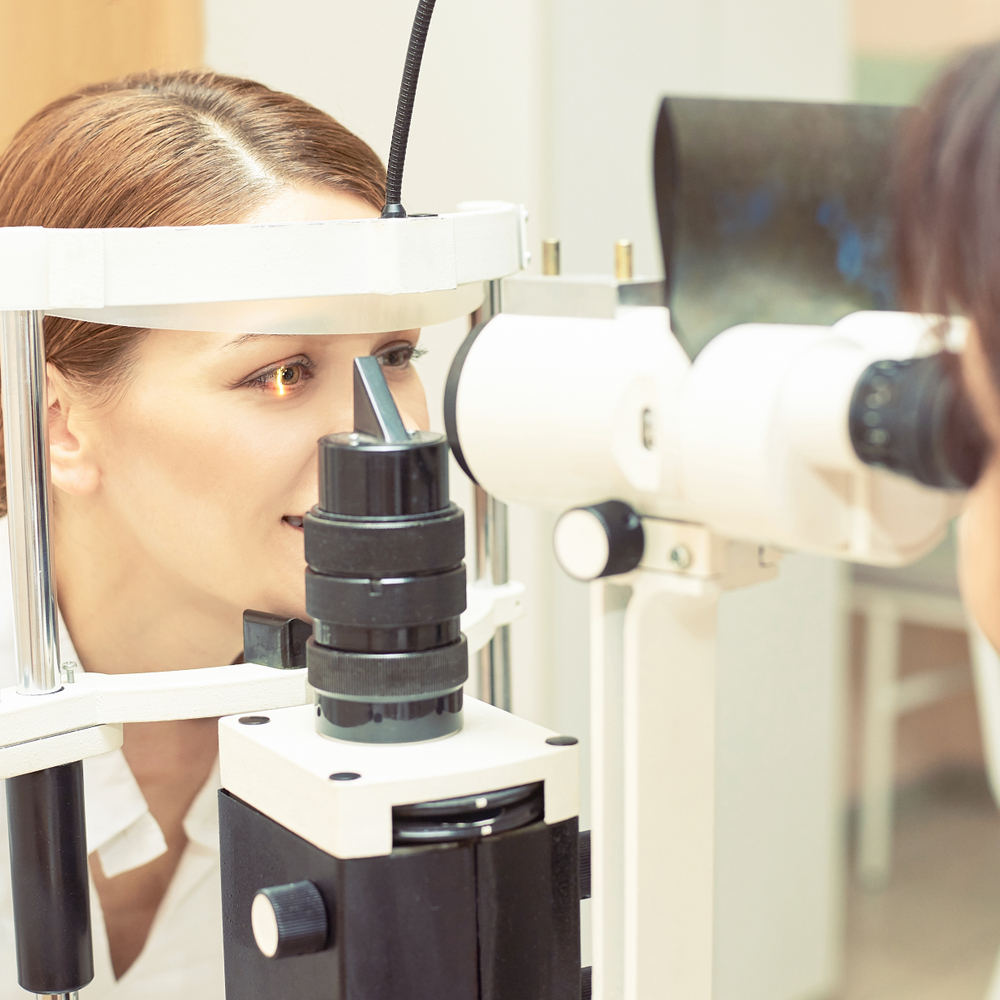Address:
26400 Kuykendahl Rd. Suite A190
The Woodlands, TX 77375

Are you due for an eye exam? Whether it's your first time or you're a regular visitor to the optometrist, understanding what to expect from a comprehensive eye exam can help alleviate any anxiety and ensure you make the most of your visit.
Before heading to your eye appointment, there are a few things you can do to ensure a smooth and efficient examination. First, gather any relevant medical records or information about your eye health history. This includes any previous diagnoses, surgeries, or family history of eye conditions. Having this information readily available will help your optometrist better understand your eye health and make more accurate recommendations.
Next, make a list of any specific concerns or symptoms you've been experiencing. Are you struggling with blurry vision, eye fatigue, or dryness? Note down these details, as they will guide the conversation with your optometrist and help them address your specific needs. It's also a good idea to bring your current eyeglasses or contact lenses, even if they are old or outdated. This will give your optometrist valuable information about your current prescription and any changes that may be necessary.
Lastly, plan ahead for transportation. Dilating eye drops are commonly used during comprehensive eye exams to widen the pupils for a better view of the eye's internal structures. These drops can temporarily blur your vision, making it unsafe to drive afterward.
During a comprehensive eye exam, you can expect several tests and procedures to be performed. These tests are designed to evaluate different aspects of your eye health and vision. Here are some of the most common tests you may encounter:
Visual Acuity Test: This test measures how well you can see at various distances. You will be asked to read letters or symbols from a standardized eye chart, and your optometrist will determine your visual acuity based on your responses.
Refraction Test: This test determines your exact eyeglass or contact lens prescription. You will look through a device called a phoropter, and the optometrist will ask you which lens options provide the clearest vision.
Slit-Lamp Examination: Using a specialized microscope called a slit lamp, the optometrist will examine the structures of your eye, including the cornea, iris, and lens. This allows them to detect any abnormalities, such as cataracts or signs of infection.
Intraocular Pressure Measurement: This test measures the pressure inside your eyes and helps detect glaucoma. The optometrist may use a tonometer or a puff of air directed at your eyes to obtain this measurement.
Dilation: To get a better view of the back of your eye, your optometrist may administer dilating eye drops. These drops temporarily enlarge your pupils, allowing for a more thorough examination of the retina and optic nerve.
A comprehensive eye exam is not only essential for determining your visual acuity but also for detecting and managing various eye conditions. Here are some common eye conditions that can be detected during a comprehensive eye exam:
Refractive Errors: Nearsightedness, farsightedness, and astigmatism are common refractive errors that can be easily corrected with eyeglasses, contact lenses, or refractive surgery.
Cataracts: A cataract is a clouding of the lens inside the eye, leading to blurry vision. During an eye exam, your optometrist can assess the severity of cataracts and recommend appropriate treatment options.
Glaucoma: Glaucoma is a group of eye conditions that damage the optic nerve, often caused by increased eye pressure. Regular eye exams can help detect glaucoma early and prevent further vision loss.
Macular Degeneration: Age-related macular degeneration (AMD) affects the central part of the retina and can result in vision loss. Your optometrist can monitor for signs of AMD during a comprehensive eye exam and provide guidance on managing the condition.
Diabetic Retinopathy: Diabetic retinopathy is a complication of diabetes that affects the blood vessels in the retina. Regular eye exams are crucial for early detection and management of this condition.
A comprehensive eye exam is not just about checking your visual acuity; it is an opportunity to assess your overall eye health and detect any potential eye conditions or diseases. By preparing for the exam, understanding what to expect, and being aware of the common tests and procedures involved, you can make the most of your visit to the optometrist.
Schedule your comprehensive eye exam today and ensure the health of your eyes for years to come, visit Creekside Family Eyecare in The Woodlands, Texas. Call 832-559-3861 to book an appointment.